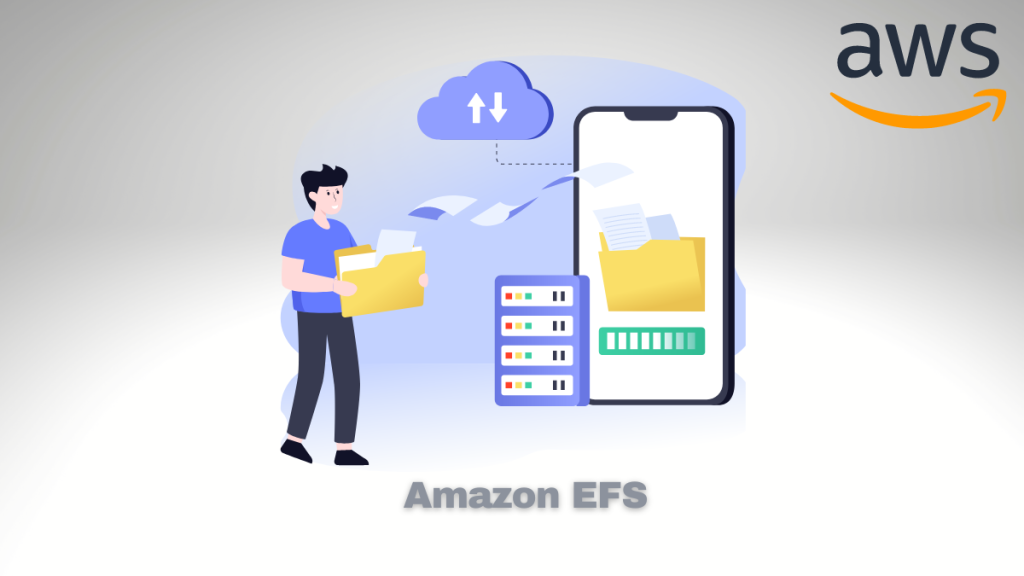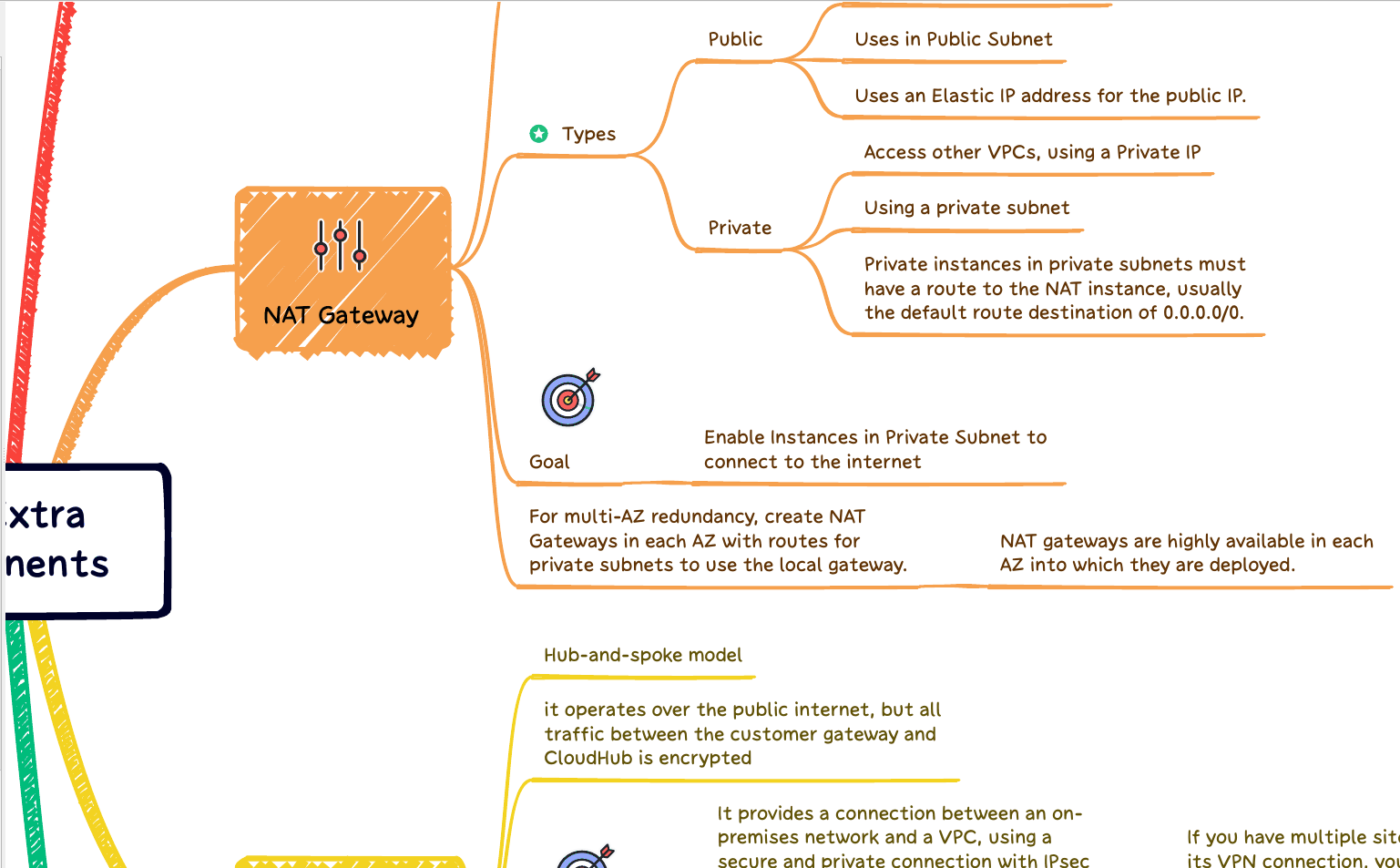Amazon Elastic File System (EFS) is a cloud-based storage system that provides scalable file storage for Amazon EC2. In addition, it offers cost-effective storage that can be accessed from multiple Amazon EC2 instances simultaneously. This blog post will discuss the scenarios in which you should use EFS, its benefits, and the cost impacts.
When Should You Use Amazon EFS?
Amazon EFS is ideal for applications requiring concurrent data access from multiple Amazon EC2 instances. This includes applications such as web servers, media streaming services, content delivery networks (CDNs), and analytics platforms. It can also store documents, images, videos, and other large files.
Here are some business scenarios where Amazon EFS may be the best option:
Web Applications:
- Amazon EFS is ideal for web applications that require shared file storage across multiple instances. EFS provides a POSIX-compliant file system that can be mounted to multiple EC2 instances simultaneously, making it easy to share files across instances scalable and cost-effectively.
Content Management Systems:
- Amazon EFS is well-suited for content management systems (CMS) that require a centralized file repository. EFS provides a reliable and scalable file storage solution that can be used to store and manage content files, media assets, and other resources used by CMS applications.
Big Data Analytics:
- Amazon EFS is an excellent choice for big data analytics workloads that require shared access to large data sets. EFS provides high throughput and low latency access to data, making it well-suited for applications that require real-time data processing and analysis.
DevOps and CI/CD pipelines:
- In DevOps and CI/CD pipelines, EFS can store code and artifacts shared across multiple EC2 instances. EFS can provide a central repository for code and artifacts, making managing and maintaining the pipeline easier.
High-performance computing (HPC):
- EFS can be used in HPC workloads requiring shared data access across multiple EC2 instances. EFS can provide a scalable and high-performance file system that can handle the storage needs of HPC clusters.
Machine learning (ML) and artificial intelligence (AI):
- EFS can be used in ML and AI workloads that require shared access to large datasets across multiple EC2 instances. EFS can provide a scalable and highly available file system that can handle the storage needs of ML and AI workloads.
Why Is Amazon EFS Beneficial?
Amazon EFS makes it easy to scale your file system up or down according to your needs. As a result, you can provision more capacity in minutes without downtime or service disruption. Additionally, it has built-in redundancy to protect your data against outages and natural disasters. You don’t have to worry about managing hardware or software; Amazon’s managed service takes care of everything.
Lifecycle management
EFS Intelligent-Tiering Lifecycle management enables you to automatically transition your files into your application’s most cost-effective storage class. Through Lifecycle Management, EFS Intelligent-Tiering monitors access patterns and moves infrequently accessed data from Standard storage to Standard-Infrequent Access (IA) storage after 30 days. Lifecycle Management simplifies storage management and reduces costs by optimizing your application’s price and performance blend.
With Lifecycle Management, you can significantly reduce storage costs without impacting your application. As files transition into IA, they become eligible for discounted pricing and automatically benefit from cost savings. Additionally, Lifecycle Management ensures that frequently accessed files remain in Standard storage for the best performance. Lifecycle Management provides you with a simple way to optimize the price and performance of your application at all times.
EFS Intelligent-Tiering Lifecycle Management is designed to help you save money on your storage costs. By automatically transitioning your data into IA, Lifecycle Management ensures you always take advantage of your application’s most cost-effective storage class. Lifecycle Management also simplifies storage management and reduces costs by optimizing your application’s price and performance blend.
Throughput mode
EFS Throughput mode provides the flexibility to optimize your workload performance according to your needs. Throughput mode offers two options: Enhanced and Bursting.
Enhanced Throughput mode allows you to provide an expected throughput level for your file system that scales as you add or remove files from the system. This flexibility enables you to meet increasing data access demands without adjusting your Throughput mode continuously.
Bursting Throughput mode provides throughput that scales with the amount of storage you provision, allowing you to burst up to a higher throughput level when needed. Bursting Throughput mode is ideal for workloads with basic performance requirements, such as archiving and backup solutions.
Backup
AWS Backup is a managed backup service that lets you automatically back up your Amazon EFS file systems. You can choose from three backup strategies: daily, weekly, or monthly. When creating a backup policy, you must specify the retention period for each backup plan and the AWS accounts and regions in which backups are stored.
Once you have created your backup policy, AWS Backup will manage the lifecycle of your backups and ensure that your file systems are backed up at the specified intervals. AWS Backup also provides detailed reports to view details about each backup and the status of the entire backup plan. Additionally, AWS Backup ensures that deleted files and accidental overwrites are stored in the backup plan to ensure you have access to your data, even if it is lost or corrupted.
AWS Backup provides a reliable, cost-effective solution for protecting your Amazon EFS file systems. With AWS Backup, you can enjoy peace of mind knowing that your data is safe and secure and can easily recover any lost or corrupted files. AWS Backup also makes storage management easier and more affordable, as you can take advantage of discounts provided by Intelligent-Tiering Lifecycle Management and Throughput mode.
Encryption
Amazon EFS provides a secure way to safeguard your data with encryption in transit and at rest. By simply clicking a few times, you can create an encrypted file system to ensure your information is protected during future operations. Even when mounting the freshly created filesystem, there’s no worry about unauthorized access since each data transmission is encrypted!
When you enable Encryption at Rest, your data is kept secure and safe while stored on a disk within the AWS region. Amazon EFS utilizes encryption keys to protect your file system’s contents which are then stored in an encryption key store of your choice (i.e., AWS Key Management Service, AWS CloudHSM, or HSM). With this level of protection for confidential information, nothing stands between you and ultimate peace-of-mind security!
Keep your data safe with Amazon EFS by securely establishing encryption tunnels between the source and destination using AES-256 or TLS 1.2 encryption before any files are transmitted. This extra layer of protection means you can sleep soundly, knowing that all your information is secure in transit!
To ensure maximum security when employing CLI or API to access AWS, utilize FIPS 140-2 validated cryptography modules. Bring extra safety measures into play by taking advantage of the FIPS endpoint for further protection.
Shield your data from unwelcome visitors with encryption and Amazon EFS. Enable this feature to maintain the integrity of your file system, keeping out any unwanted actors who would like to access or breach it.
How to learn more
Download the AWS Learning Kit to start your journey with AWS and become certified. With our comprehensive downloadable materials, training courses, and interactive tools, you’ll be on your way to mastering cloud computing. Start learning today and get certified in no time! Don’t forget to check out our free practice exams – the perfect way to test your knowledge and prepare for certification. Get started now! Unleash the power of cloud computing with AWS and become an expert in no time. Download now and get certified today!
AWS Services Supported
Amazon EFS can be used with various AWS services, such as Amazon ECS and Fargate for containerized workloads, Lambda for serverless applications, or Amazon SageMaker for AI/ML models.
EFS provides fast and scalable storage with flexible scalability options to meet the needs of any application. When using EFS with ECS and Fargate, you can store data securely in Amazon EFS, share it across multiple tasks or services, and easily manage both EFS storage and EC2 instances.
EFS also supports Lambda functions, providing fast read/write access to your data without additional storage. EFS is also integrated with Amazon SageMaker, allowing you to store training data or other models in EFS and use them for training machine learning models on SageMaker.
With EFS, it’s easy to quickly provision the right amount of storage for your application needs, ensuring optimal performance and scalability.
With Amazon EFS, you can ensure your data remains secure and available no matter where it is stored. EFS’s encryption in transit and at rest features provide additional security to protect your data from unauthorized access. EFS also supports integration with key management services, such as AWS KMS or HSM, allowing customers to manage their encryption keys. EFS also supports VPC Endpoints, allowing customers to securely access EFS without exposing their data over the public internet.
Configurations
Security Group
To enable traffic between an EC2 instance and a mount target (and thus the file system), you must configure two inbound rules in the Security Group associated with the mount target:
– The first rule should allow inbound traffic from any IP address on TCP port 2049 for NFSv4.
– The second rule should allow inbound traffic from the Security Group associated with the EC2 instance on TCP port 2049 for NFSv4.
It is important to note that you must also configure inbound rules in the Security Group associated with the EC2 instance. These rules depend on whether you are using an IPv4 or IPv6 address.
– If you are using an IPv4 address, the Security Group associated with the EC2 instance must allow inbound traffic from any IP address on ports 2049 and 111 for NFSv4.
– If you are using an IPv6 address, the Security Group associated with the EC2 instance must allow inbound traffic from the Security Group associated with the mount target on ports 2049 and 111 for NFSv4.
Once these Security Group rules have been configured, you can successfully mount your file system from the EC2 instance. You can then begin using Amazon EFS to store and manage your data securely in the cloud.
What Are the Cost Impacts of Using Amazon EFS?
The cost of using EFS varies depending on the size of your file system and how much data you store in it. However, you can expect a minimal initial cost and then pay based on usage at an hourly rate. Additional fees may be associated with API requests or data transfer costs if you transfer large amounts of data in or out of an EFS file system.
If we store 10GB of monthly data in Amazon EFS, the cost would be $0.30 per GB-month (plus applicable taxes and fees). This comes out to a total cost of $3/month for our 10GB file system. Storing the same data in an S3 bucket would cost around $1/month. But, of course, the scenarios are different. S3 it’s cheaper if you need to read or write without concurrent operations.
Limitations
Cost: EFS can be more expensive than other storage options, especially for workloads with high levels of data access.
Operation System: Only Support Linux.
Every individual mount on the client can attain up to 65,536 locks per connection.
An instance can bear up to 32,768 open files simultaneously – listing directory contents is not considered an ‘open file’.
Maximum size of a single file: 47.9 TiB
Conclusion
In conclusion, Amazon EFS offers many benefits over traditional file systems regarding scalability and reliability while being reasonably priced. If you need a way to store large amounts of data that multiple users can access concurrently without having to manage hardware or software yourself, consider using the Amazon Elastic File System for your next project!

